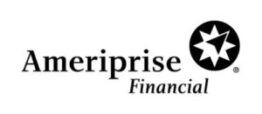
Steven John Meyer, of Staten Island, New York, a stockbroker formerly registered with Legend Securities, has been barred from associating with any FINRA member in all capacities based upon consenting to findings that he excessively traded and churned the firm’s customer accounts, and placed trades without authorization. Letter of Acceptance, Waiver and Consent, No. 2017052709201 (Oct. 12, 2017).
According to the AWC, from April of 2014 to October of 2016, during which time Meyer was associated with Legend Securities, Inc., he churned four of the firm’s customer accounts, including customer JH – a fifty-nine-year-old physician who relied upon Meyer’s investment advice and acquiesced to Meyer’s investment recommendations. Apparently; however, seventy percent of the transactions that Meyer placed in the customer’s account were not authorized by the customer.
Evidently, JH was not aware of the costs of investing due to the mark-ups and mark-downs charged, as those charges were not made clear. JH’s $57,932.53 invested with Meyer reportedly suffered from a 42.9 turnover rate, and 51.635 cost-to-equity ratio. Consequently, JH sustained $44,074.05 in losses over a one-year period, while Meyer accumulated $33,897.42 in sales charges.
The AWC also referenced customer LS, who was a sixty-five-year-old insurance representative, who started investing with Meyer in April of 2014. LS, like JH, had limited investment experience. Meyer reportedly placed thirty-one trades in LS’s investment portfolio between April of 2014 and December of 2014, controlling his account just like he did with JH. A total of $44,843.00 was invested by LS, where he was subject of a turnover rate equaling sixteen and 104.58 percent cost-to-equity ratio. The AWC stated that Meyer’s trading led customer LS to sustain $28,584.63 in losses even though $18,457.50 in sales charges had been accumulated by Meyer.
According to the AWC, Meyer was also responsible for trading in the account of eighty-six-year-old customer, CK, who started investing with Meyer in August of 2014. Apparently, thirty-nine transactions were effected in CK’s investment account between August of 2014 and April of 2015, where CK was exposed to a turnover rate equaling 12.4 and 65.41% cost-to-equity ratio. Meyer raked in $17,215.50 in sales charges during the same time that CK incurred $42,803.25 in investment losses.
Furthermore, a forty-one-year-old farmer, TF, invested with Meyer in December of 2014. One-hundred and thirty-three transactions were reportedly executed in TF’s account between December of 2015 and September of 2016, where he was subject of a turnover rate exceeding thirty and 80.62% cost-equity ratio. Meyer reportedly traded in the customer’s account with the aim of accumulating sales charges, where his sales charges in TF’s and LS’s accounts led certain transactions to produce losses for the investors that would have resulted in gains if not for the sales charges imposed.
The AWC stated that Meyer caused his customers to sustain at least $115,000.00 in losses while Meyer accumulated sales charges of $160,000.00. The investment portfolios of customers TF, CK, LS and JH were found by FINRA to have been churned, as the sales charges imposed for investing stripped away their investment returns; the sales charges benefited Meyer at the cost of his customers. Due to the complexity of the mark-ups and mark-downs imposed in their accounts, the customers reportedly could not grasp the severity of how the costs affected their portfolio values. FINRA concluded that Meyers’ conduct was violative of FINRA Rules 2010, 2111, 2020, as well as Securities and Exchange Act of 1934 Section 10(b) and SEC Rule 10b-5.
FINRA further detailed that Meyer’s transactions were not authorized. Specifically, he placed ten transactions in JH’s investment account between August of 2015 and October of 2016 that JH never authorized. Aside from four transactions, Meyer’s transactions in 2016 were all effected without JH’s consent. FINRA found that Meyer’s conduct in that regard was violative of FINRA Rules 2010.
FINRA Public Disclosure reveals that Meyer has been subject of at least two customer initiated investment related disputes concerning allegations of his wrongdoing while at Legend. Specifically, a customer was awarded $39,909.82 in damages according to a customer initiated investment related arbitration claim involving Meyer’s conduct, based upon findings of fraud, misrepresentation, unsuitable transactions, and violation of Michigan Uniform Securities Act in regard to equities effected by Meyer in the customer’s investment account. FINRA Arbitration Case No. 16-01307 (Dec. 5, 2016).
Meyer’s registration with Legend Securities, Inc., a firm which FINRA expelled on April 17, 2017, was terminated on October 12, 2016.
Our practice is limited to the representation of investors. We accept representation on a contingent fee basis, meaning there is no cost to you unless we make a recovery for you. There is never any charge for a consultation or an evaluation of your claim. For more information, contact us at (877) SEC-ATTY.
For more information concerning common claims against stockbrokers and investment professionals, please visit us at securitiesarbitrations.com
To learn more about FINRA Securities Arbitration, and the legal process, please visit us at securitiesarbitrations.com








